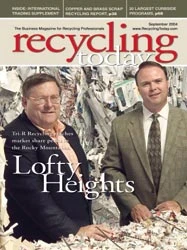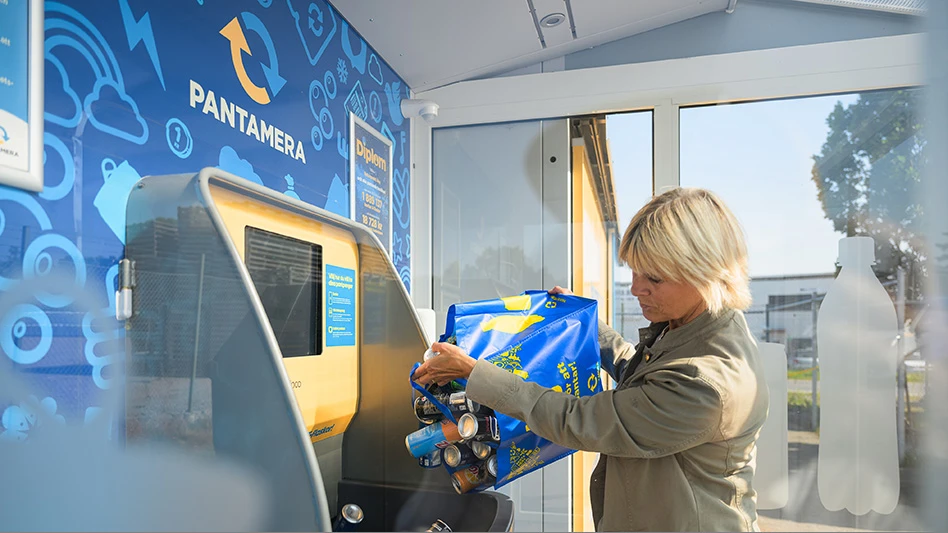C&D Fines Hit Roadblock in N.H.
The New Hampshire Department of Environmental Services (DES) has banned the use of fines generated at mixed C&D recycling operations as alternative daily cover (ADC) in municipal solid waste (MSW) landfills.
C&D recyclers in the state were informed of the surprise move in a certified letter from Anthony P. Giunta, director of DES’ Waste Management Division, who issued the letter July 16, made the ban effective July 26 and then reportedly went on vacation for two weeks.
According to the letter, the department banned the "co-disposal of ‘gypsum-containing’ fines with MSW . . . because the Department believes that there is a link between these fines placed with MSW and the production of high amounts of hydrogen sulfide, mercaptans and other reduced sulfur compounds."
Waste industry observers in the state say the action took place because the state’s largest landfill, Waste Management’s Turnkey operation in Rochester, N.H., was experiencing odor problems. Besides using C&D fines as ADC, the facility also takes in other types of waste, such as municipal sludge.
The Construction Materials Recycling Association (CMRA), Lisle, Ill., and others have asked the DES for the scientific data upon which it has based its decision. The DES has not yet produced the information, according to CMRA Executive Director William Turley.
The CMRA, which is currently creating a database on the composition of C&D fines from recycling operations across the country, is asking if the DES can make such a unilateral and economically damaging action to the state’s C&D recyclers without at least some type of promulgation or public hearing. "We are investigating the mechanism they must follow in issuing such rules," Turley says.
No one doubts the DES’ ability to create such a rule. But, Turley says, there is no proof that the fines were causing an odor problem and blaming them may have been a hasty decision. "Of course, under the right conditions gypsum can create hydrogen sulfide gas, but you have to make those right conditions," he says. "Dozens of landfills across the U.S. use C&D fines as ADC with no odor problem. The trick is to use them properly, and, to that end, the CMRA is going to develop a best management practices guideline for using C&D fines."
The DES says that it will work with C&D recyclers in the state to develop new outlets for the fines, but some are skeptical that enough new markets can be found for the amount of fines being produced.
Consigli Wins State Award
Consigli Construction Co., Milford, Mass., has received the first Massachusetts WasteWise Construction Recycling Leadership Award for adopting a protocol for the diversion of C&D materials.
Instead of direct disposal of the materials, Consigli incorporates a source-separation strategy and intensive recycling into its construction business philosophy. The company’s approach proves that management and diversion of C&D materials can be accomplished efficiently and cost effectively, according to the Massachusetts Department of Environmental Protection (DEP) and U.S. EPA, award co-sponsors.
Consigli was also cited for its willingness to share what it learned with other companies, which its representatives have done through presentations such as one at the Construction Materials Recycling Association 2004 Annual Meeting and C&D World Expo in New Orleans.
In making the award presentation, DEP Assistant Commissioner James Colman stated, "Consigli Construction has been a terrific partner to the DEP in our efforts to divert C&D debris from landfills. They are demonstrating that a company can improve the environment and their own bottom line through aggressive and strategic recycling and reuse strategies. They are most deserving of our first Construction Recycling Leadership Award."
EPA WasteWise team member Charles Heizenroth added, "EPA is very impressed with Consigli’s dedication to recycling C&D waste. We are also excited to be working with the DEP on this innovative state-federal collaboration."
In accepting the award, Matthew Consigli, vice president of operations, said, "In addition to benefiting the environment, we have been able to reduce our overall disposal costs, demonstrating that green practices can also be good business practices. As industry leaders, we look forward to implementing even more environmental initiatives in the future."
Get curated news on YOUR industry.
Enter your email to receive our newsletters.

Explore the September 2004 Issue
Check out more from this issue and find your next story to read.
Latest from Recycling Today
- Plastics association quantifies US-EU trade dispute impacts
- Nucor expects slimmer profits in early 2025
- CP Group announces new senior vice president
- APR publishes Design Guide in French
- AmSty recorded first sales of PolyRenew Styrene in 2024
- PRE says EU’s plastic recycling industry at a breaking point
- Call2Recycle Canada, Staples Professional expand partnership
- Circular Services breaks ground on north Texas MRF






